Liberia is on the move from an “emergency” to a “development” phase in its history. Peace is obviously the biggest accomplishment in Liberia after 14 years of civil war. According to Tarja Halonen, President of the Republic of Finland, “Peace does not only mean an absence of war. The promotion of development, security and human rights paves the way….”
POLITICS
Matters came to a head in 2003 when Mr. Taylor, then president, under international pressure to quit and hemmed in by rebels, stepped down and went into exile in Nigeria. A transitional government steered the country towards elections in 2005. Ellen Johnson-Sirleaf became president in 2006 after the first polls since the end of the civil war. As a Harvard-educated economist President Johnson-Sirleaf brings to the table her experience from working for the UN and the World Bank and as former Finance Minister of Liberia. Johnson-Sirleaf won the second round of presidential elections in November 2005 and in January 2006 she was inaugurated as Africa's first elected woman head of state. The poll was intended to draw a line under Liberia's war. International observers said the vote had been broadly free and fair.
Known in Liberia as the "Iron Lady", Mrs. Johnson-Sirleaf drew much of her support from women voters, and from Liberia's small educated elite. She faces the twin challenges of trying to rebuild the country and of fostering reconciliation. Corruption having been rampant for years in Liberia, the president has declared a "zero tolerance" of corruption. Holding true to this policy, several members of the previous transitional government have been arrested on charges of corruption.
One of the main items on Johnson-Sirleaf’s agenda is promoting women’s rights throughout Liberia and the world. In this context, she and H.E. Tarja Halonen, president of Finland, will be convening the International Colloquium on Women’s Empowerment, Leadership, Development, International Peace and Security.
INFRASTRUCTURE IMPROVEMENTS
One year after Africa's first elected female head of state, President Ellen Johnson-Sirleaf, started the massive job of rebuilding war-shattered Liberia, her government has made a good start but still faces huge challenges.
With donors meeting to discuss Liberia, President Sirleaf will be hoping for a bigger budget and the population's patience but the road ahead is still uphill.
She has also renegotiated a controversial deal with the world's largest steel maker, Mittal, worth almost $1 billion, which should ensure a few thousand jobs.
The new government is also working towards improving national security and safety within the country by rehiring and retraining military and police personnel.
DynCorp spokesperson in Monrovia, Renee Hubka said it was going to be different this time.
"These men are not just going to learn the things we all learn in the military - basic structure, rules and things. They are going to classes to learn rule of law, the constitution, about gender politics of course, about how to treat people. We're also boosting their educational level, so I think that is a big difference from the old AFL."
Key development indicators are showing positive signs for Liberia including a 47% reduction in the under-5 mortality rate and a 50% reduction in the infant mortality rate from 2006 to 2007.
WOMEN’S EMPOWERMENT- COLLOQUIUM 2009
Liberia has become a center of activity for women’s rights and empowerment, not just in Africa, but also in the world forum today.
From March 7-9, 2009 Monrovia, Liberia will be the host for the International Colloquium on Women’s Empowerment, Leadership, Development, Peace and Security. “The development objective of the colloquium is to empower women at various levels to become effective leaders and thereby positively impacting development by their making a difference qualitatively on issues at national and international levels through their active participation in Governance.”
This objective is directly derived from and situated within the framework of the United Nations Security Council Resolution 1325 with emphasis on women’s empowerment and leadership in all dimensions which was passed unanimously on 31 October 2000 as the first resolution ever passed by the Security Council that specifically addresses the impact of war on women and women’s contributions to conflict resolution and sustainable peace.
This resolution:
-Urges Member States to ensure increased representation of women at all decision-making levels in national, regional and international institutions and mechanisms for the prevention, management, and resolution of conflict;
-Encourages the Secretary-General to implement his strategic plan on action (A/49/587) calling for an increase in the participation of women at decision-making levels in conflict resolution and peace processes;
-Urges the Secretary-General to appoint more women as special representatives and envoys to pursue good offices on his behalf, and in this regard calls on Member States to provide candidates to the Secretary-General for inclusion in a regularly updated centralized roster;
-Further urges Secretary-General to seek to expand the role and contribution of women in United Nation field-based operations, and especially among military observers, civilian police, human rights and humanitarian personnel;
-Invites the Secretary-General to carry out a study on the impact of armed conflict on women and girls, the role of women in piece building and the gender dimension of peace processes and conflict resolution, and further invites him to submit a report on the Security Council on the results of this study and to make this available to all Member States of the United Nations.
Liberia has really taken this mission to heart, integrating many new women’s rights positions into the government and appointing Liberian women to various leadership positions in the country. Liberia's Minister of Gender, a post set up to empower women is one of many others including 5 women in cabinet positions as Ministers of strategic ministries like the ministries of Foreign Affairs, Justice, Finance, Commerce and Industry, and Youth and Sports over the past two years. There are currently also 5 women ambassadors in key missions including Belgium, China, Germany, Ivory Coast, and South Africa, 5 women senators out of 30 and 8 women representatives out of 64. Two of the five justices on the panel of Supreme Court Justices are female, including many other female judges throughout the country.
TOURISM
Liberia is a place to experience history in motion, cultural diversity, and a myriad of eco-tourism possibilities. Liberia is a land of historical highlights including Africa’s first republic and first woman president. Liberia is a land of mountains and extensive rainforests, abundant in minerals, blue lakes and sandy beaches with palm trees, the pepper bird and the pigmy hippo.
While Liberia ranks among the world’s best countries for incredible beaches, there are many other amazing sites to see. Cape Palmas with its historical monuments, old architecture and pristine beaches is a paradise worth discovering. Wulki Farms is an adventure for everyone with many activities to choose from including horseback riding and alligator and ostrich viewing. Other must-sees include Lake Piso, Sapo National Park, Providence Island, Mount Nimba and the enchanting Blue Lake.
With all there is to do and see in Liberia, the tourism sector is ripe with investment opportunities, especially in the developing high-end hotel and restaurant sectors, among others.
ECONOMIC AND INVESTMENT OPPORTUNITIES
Some of the main opportunities of interest to investors include the countries wide variety of natural and agricultural resources that include diamonds, iron ore, rubber, timber, coffee, and cocoa. In addition to these resources the government of the country provides many benefits designed to easily enable investment which include and investor friendly Open-Door Policy for which many investment and revenue codes can be referenced, some offering up to 30% tax breaks to qualified investors. There are also the Free Port and Free Zone that enable easier importation and exportation for companies based within these districts. For ease of transport, which is becoming ever more important in today’s business climate the country sports the maritime flag of confidence. For those looking to emerging markets for investment, they will be pleasantly surprised with their findings in Liberia.
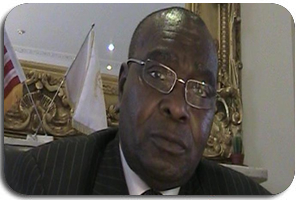 H. E. Mr. Wesley M. JohnsonAmbassadorEmbassy of the Republic of Liberia H. E. Mr. Wesley M. JohnsonAmbassadorEmbassy of the Republic of Liberia | 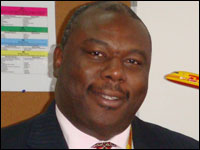 Mr. Kenneth AngaCountry ManagerDHL Mr. Kenneth AngaCountry ManagerDHL |  Joseph T. MayahManaging DirectorLiberia Electricity Corporation Joseph T. MayahManaging DirectorLiberia Electricity Corporation | 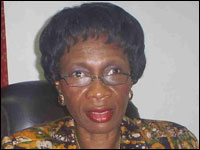 Cllr Wheatonia Y. Dixon BarnesExecutive DirectorLiberian Refugee Repatriation and Resettlement Commission Cllr Wheatonia Y. Dixon BarnesExecutive DirectorLiberian Refugee Repatriation and Resettlement Commission |
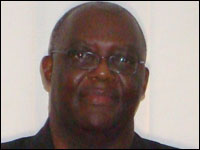 Joseph P. KellerGeneral ManagerLISCR- Liberia International Shipping and Corporate Registry Joseph P. KellerGeneral ManagerLISCR- Liberia International Shipping and Corporate Registry | 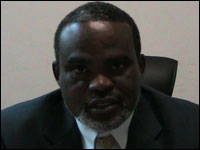 Mr. Albert Nah BroplehChairmanLiberia Telecommunication Authority Mr. Albert Nah BroplehChairmanLiberia Telecommunication Authority | 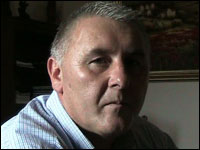 Mr. Mark SlowenChief Executive OfficerSubsea Resources Mr. Mark SlowenChief Executive OfficerSubsea Resources | 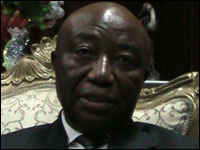 Mr Joseph N. BoakaiVice president of LiberiaLiberia Mr Joseph N. BoakaiVice president of LiberiaLiberia |
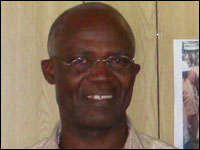 N. Hun-Bu TulayManaging DirectorLWSC-Liberia Water & Sewer Corporation N. Hun-Bu TulayManaging DirectorLWSC-Liberia Water & Sewer Corporation | 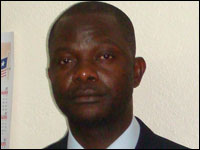 Hon. Nyah ManteinManaging DirectorLPMC-Liberian Produce Marketing Corporation Hon. Nyah ManteinManaging DirectorLPMC-Liberian Produce Marketing Corporation | 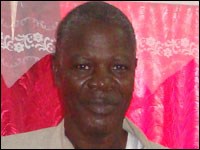 Mr. Henry G. ValhmuGeneral ManagerLDAA-Liberia Domestic Airport Agency Mr. Henry G. ValhmuGeneral ManagerLDAA-Liberia Domestic Airport Agency | 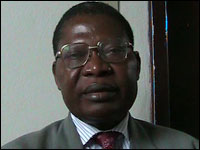 Mr. Jackson E. DoeMinister of TransportsMinistry of Transports Mr. Jackson E. DoeMinister of TransportsMinistry of Transports |
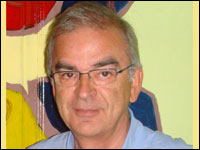 Mr. Jean-Pierre de FaillyChairman of the BoardCavalla Rubber Corporation Mr. Jean-Pierre de FaillyChairman of the BoardCavalla Rubber Corporation | 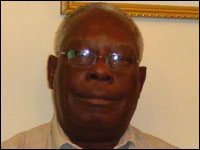 Mr. George E. TubmanManaging DirectorNational Port Authority Mr. George E. TubmanManaging DirectorNational Port Authority | 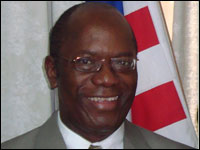 Mr. Philip BanksMinisterMinistry of Justice Mr. Philip BanksMinisterMinistry of Justice | 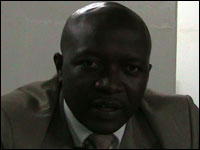 Mr. Augustine K. NgafuanMinisterMinistry of Finance Mr. Augustine K. NgafuanMinisterMinistry of Finance |
 Liberia Refugee Repatriation and Resettlement CommissionGovernment Liberia Refugee Repatriation and Resettlement CommissionGovernment |  Lonestar CellTelecommunications Lonestar CellTelecommunications |  LIBTELCOTelecommunications LIBTELCOTelecommunications |  Liberian Produce Marketing CorpAgriculture Liberian Produce Marketing CorpAgriculture |
 African Development AidAgriculture African Development AidAgriculture |  AVISTransport AVISTransport |  LIBERIA WATER & SEWER CORPORATIONHealth LIBERIA WATER & SEWER CORPORATIONHealth |  Royal HotelTourism Royal HotelTourism |
 Cape HotelTourism Cape HotelTourism |  Mamba Point HotelTourism Mamba Point HotelTourism |  Krystal Oceanview HotelTourism Krystal Oceanview HotelTourism |  I-S-I Gogi IncorporatedTrade & Industry I-S-I Gogi IncorporatedTrade & Industry |